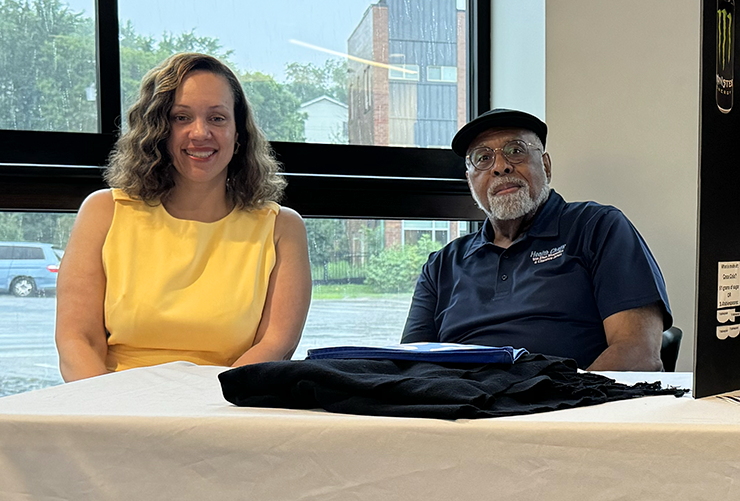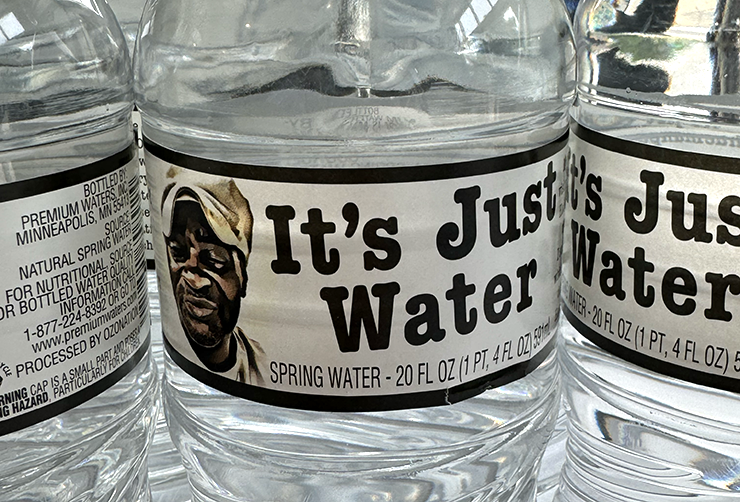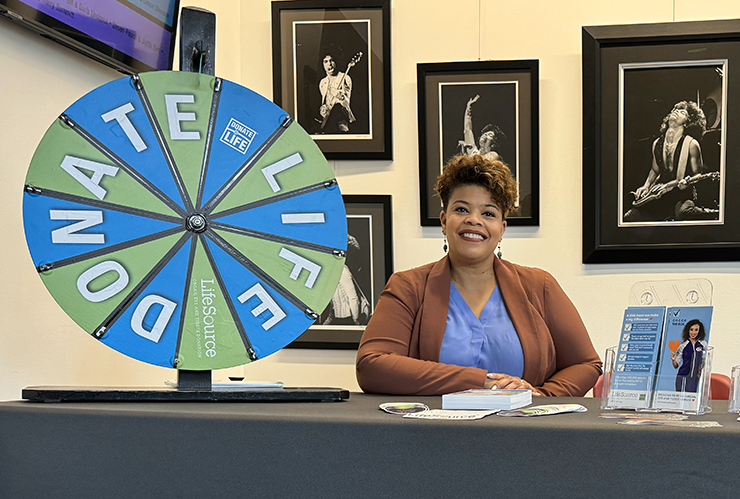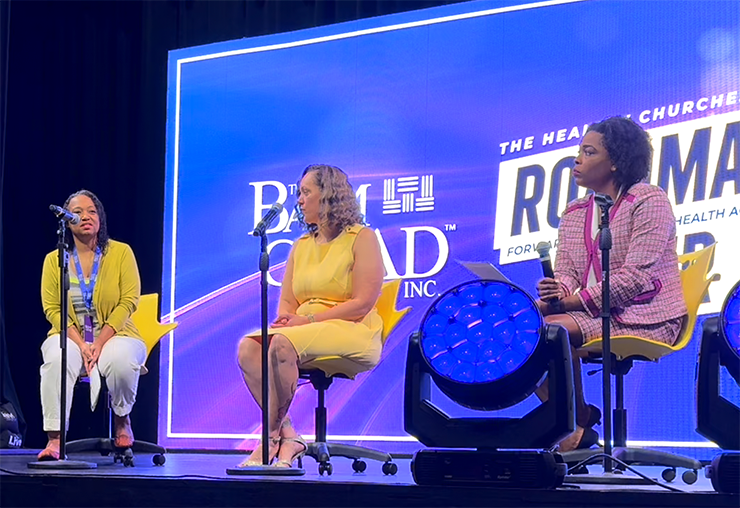In 1989, Pernessa C. Seele, who was working at Harlem Hospital, saw the fallout of the AIDS crisis all around her.
“Everyone in Harlem Hospital was dying of HIV. And nobody was coming,” remembered Seele. “The churches weren’t coming, the mamas and daddies weren’t coming.”
Seele does not remember what her official job title was at Harlem Hospital, only that it involved “fill(ing) out some forms.” What ended up happening, however, was that Seele had time to speak with HIV positive patients at the hospital.
“These were people who were leaving (their physical lives behind), and they wanted someone to sit with them and talk with them,” said Seele.
Later, as Seele was praying, she came up with the Harlem Week of Prayer for the Healing of AIDS.
“It wasn’t just prayer, it was prayer and education, too,” said Seele, “Prayer was the focus of getting the attention of our churches to get involved.”
Seele’s initial act of compassion grew beyond the Harlem Week of Prayer, now known as the National Week of Prayer for the Healing of AIDS. Seele founded The Balm in Gilead, an organization dedicated to helping Black faith communities combat health inequities, in 1992.
This past Saturday at the Capri Theater in north Minneapolis, The Balm in Gilead arrived to inform and empower Black Minnesotans as part of its 2024 Roadmap Tour, the second tour of its kind that The Balm has done. Though registration was required, the event was free to attend.

In the east lobby of the Capri Theater, tables were set up by various organizations focused on health, including a station run by the Hue-Man Partnership, which recently became “tap water ambassadors” for the City of Minneapolis. Its display featured the amount of sugar in various drinks from, typical soda to Snapple and Monster, along with bottles of water from It’s Just Water. On the bottles was an image of It’s Just Water founder Chuck Thomas, along with his story.

“Chuck was a man who lost his eyesight and his kidneys as a result of drinking soda pop and drinking Kool-Aid,” said Clarence Jones, Hue-MAN’s executive director and community health strategist. “He decided that he wanted to help other people not to be impacted the way he was, so he created a water brand. He also put his story on (the bottles) so that people understand the importance of drinking water. When we met him, we realized that it was also a way for us to talk about health, so we also decided that we would partner with him on that project.”
Thomas passed away in 2022 as a result of complications from type 2 diabetes.

Other groups with information on display included LifeSource, an organization focused around organ donation, Alter, a national organization partnering with Black faith communities to support members with dementia and the Fellowship Missionary Baptist Church, itself one of Alter’s member churches.
“I know that, as a result of working with Alter and being in the public health field, that there’s an increasing number of African Americans that suffer from hypertension, such as high blood pressure,” said Beverly Propes, a public health nurse and congregant at Fellowship Missionary Baptist Church. “Now we’re learning that many of the individuals that suffer from Alzheimer’s are individuals that have high blood pressure.”
In addition to those tabling at the event, leaders in health care from and outside Minnesota spoke about various health topics. Dr. LaPrincess Brewer led a discussion concerning health priorities in the Black community with Ronda Chakolis, PharmD, MPH, president of the Minnesota Board of Pharmacy and Dr. Brooke Cunningham, commissioner of the Minnesota Department of Health. MinnPost previously reported on Brewer’s FAITH! Initiative, which seeks to improve cardiovascular health in the Black community.

Throughout the panel, the importance of working with the community was emphasized.
“Too often when we’re in these settings, we have these views that are very paternalistic. We think we know what’s best, we need to get your blood pressure to 120 over 80, we need to get your A1C – all of these markers, when in reality, what you may be suffering with is mental health,” said Chakolis. “You may be suffering with inadequate housing. You may be suffering with abuse. (As) we look at shaping health priorities, we need to go to the resident experts. That’s the people. Their faith, their views, their values, are what drive their health. You can’t separate the physical, the mental and the spiritual. So if you try to treat just the physical, you’re going to run into a lot of barriers.”
“I get asked, a lot, ‘Why (work with) the Black church?’ and I always respond, ‘Why not the Black church?’” said Brewer during the panel. “It’s been there from the beginning, since its conception and throughout the Civil Rights Movement. Many of us would not be sitting in this room, with our degrees and calling ourselves doctors, if it weren’t for the Black church.”
After the panel, three specific disease education sessions took place, all of which were focused on various aspects of the health of the Black community. Later, after lunch, two workshops about how to begin a health ministry at a participant’s church, as well as how to strengthen an existing health ministry took place.
When asked what Seele hoped people took away from attending this event, it came down to self-advocacy.
“I hope that they come away with (the) understanding (that) they must be advocates for their health,” said Seele. “We were taught that the doctor knows everything. Well, the doctor doesn’t know everything. The doctor doesn’t give you all the information. We want people to have information when they go into the doctor to seek information, not just make the doctor your sole person for knowledge. Some doctors don’t give us access to the available treatment. We find that whereas the latest and greatest pill may be available, we may get the same pill we’ve been taking since 1980. I pray that everybody (leaves) here understand(ing) that they must be an advocate for themselves, their family and their community and congregation.”
“We cannot leave ourselves alone in the hands of health care,” said Seele, towards the end of the day’s events. “We have to change the paradigm by advocating for ourselves.”
Minneapolis is just the second stop on The Balm in Gilead’s Roadmap Tour, which debuted in Chicago in May. Next stops include Louisville, Cleveland and Oakland.


